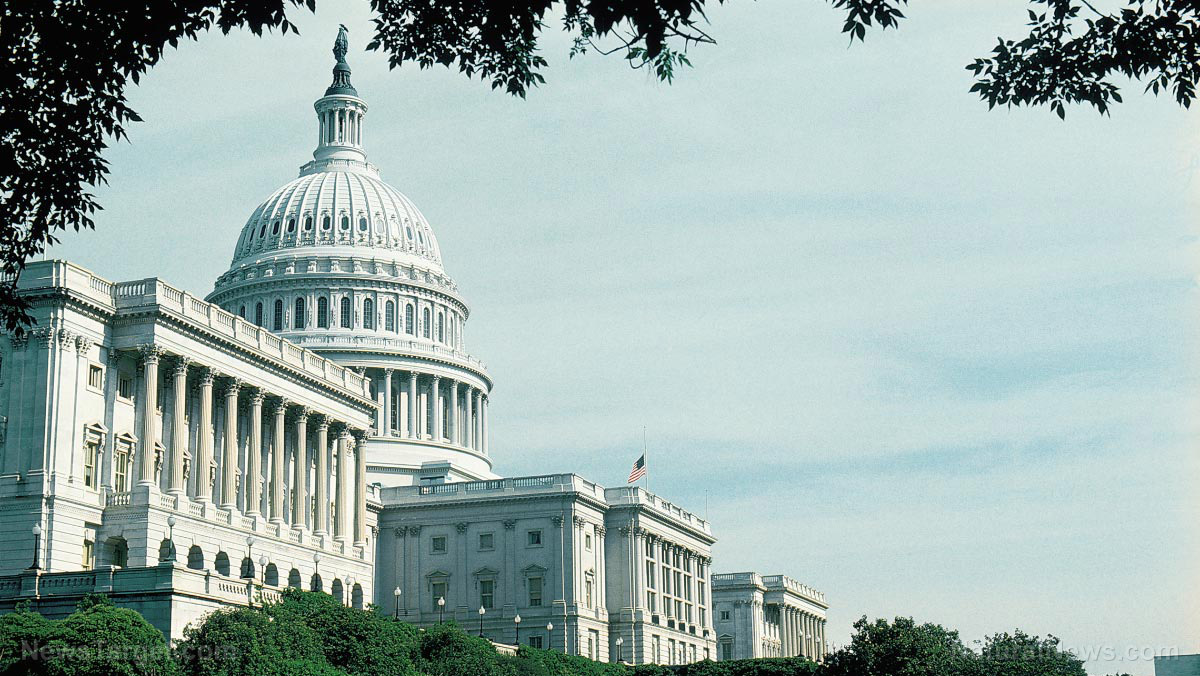War in Gaza not only claiming lives but also devastating Israel’s economy
11/22/2023 / By Belle Carter

The catastrophic consequences of the Israel-Hamas war are unfolding as the world watches. According to reports, at least 11,470 people have been killed in Israeli strikes on Gaza since October 7, but the death toll has not been updated for days due to the collapse of the enclave’s health system that collected this data. In Israel, the official death toll from Hamas’s attacks stands at about 1,200.
But this is not the only aspect that the public is seeing. As per Bloomberg, the financial effects of Tel Aviv’s military aggression, the Israeli economy has already suffered damages of about $8 billion, and they increase by $260 million every day.
Prime Minister Benjamin Netanyahu, who depends heavily on support from “ultra-Zionist right-wing political groupings,” continues to provide “vast sums” to settler-colonial and non-essential ideological programs despite this catastrophic situation, deviating from the standard wartime economic protocol, reports reveal. Furthermore, data taken from the Central Bureau of Statistics in Israel indicate that since Operation Al-Aqsa Flood began, one in three firms have either closed their doors or are only operating at 20 percent capacity. Over half of organizations in Israel have experienced revenue losses above 50 percent. The majority of enterprises in the southern regions, the ones closest to Gaza, are either closed or operating at a minimum. Worse, the Israeli Labor Ministry revealed that 764,000 people, or about five percent of the country’s workforce, are now unemployed. This is because of the reserve duty call-ups, school closures that necessitate childcare arrangements, and evacuations.
Moreover, according to Financial Times, many Israeli building projects, which mostly relied on abusing Palestinian laborers, have temporarily come to an end because Zionists “don’t want to have Palestinian workers there” and they “are upset at the sight of Arab workers holding heavy tools.”
Meanwhile, Gregory Daco, chief economist at EY-Parthenon, Ernst and Young’s global strategy consulting arm, said that in the worst-case scenario, the expansion of military action in the Middle East would entail severe consequences not just for the region but for the entire world economy. He predicted a possible moderate recession, a plunge in stock prices, and a loss of $2 trillion. Oil prices are also likely to rise to $150 per barrel from the current $85, he added.
Last month the World Trade Organization (WTO) warned that global gross domestic product (GDP) could drop five percent in the longer term if the world splits into two trading blocs as a result of the escalating conflict between Israel and Hamas. The WTO also slashed its 2023 forecast for global trade growth to 0.8 percent from the previously estimated 1.7 percent, citing a deepening manufacturing slowdown.
Netanyahu maintains Israel can afford and win the war
Three hundred Tel Aviv economists called on Netanyahu and his financial ministers to wake up and “come to your senses” earlier in November. They pointed out the “grave blow that Israel was dealt,” and are aware of the tragedy that is unfolding. “A fundamental change in national priorities and a massive rechanneling of funds to deal with war damage, aid to victims, and the rehabilitation of the economy,” was how they see the cataclysm.
But the prime minister maintained his stance and boldly promised to establish an “economy under arms” in response. “My guidance is clear: we are opening the taps, pumping money to everyone who needs it. Whatever economic price this war exacts on us, we will pay it without hesitation. We will beat the enemy in the military war and we will win the economic war, too,” he boasted.
A lot of analysts think otherwise. They feel like Israel is just as dangerously misguided about its ability to sustain its economy amid the ongoing conflict. The Start-Up Nation Policy Institute (SNPI) has released reports on this. One study found that results were startling on the harm done to the country’s tech industry, which was once a source of pride and delight for the country and a predictor of future development, just two weeks after the Al-Aqsa Flood began. The Tel Aviv-based think tank predicted a quickly approaching “economic crisis whose force is still unknown” even at that early stage. Overall, the deteriorating security situation in Israel was cited as a cause of damage by 80 percent of Israeli information technology (IT) companies, with 25 percent citing “double damage, both in human resources and in obtaining investment capital.” Just 10 percent of the tech firms were “managing to have meetings with investors” at all, while over 40 percent of them had postponed or canceled investment agreements.
On November 2, SNPI also released another report that examined Israel’s economic resilience to security crises in the past, using data from “significant combat events of the last twenty years.” This included Operation Protective Edge in 2014, a deadly seven-week battle that wreaked further havoc, punishment and devastation on Gaza’s already blockaded population. “Tel Aviv has proven its ability to overcome crises of this sort in the past and emerge stronger, even though it acknowledged that recent events had naturally raised big concerns among foreign investors, partners, and customers of Israeli businesses,” the study concluded. (Related: The U.S. and Israeli war agenda will bring the world into an economic DOOM LOOP, Andy Schectman warns Mike Adams.)
Check out EconomicRiot.com to learn more about the economic repercussions of the ongoing conflict in the Middle East.
Sources for this article include:
Submit a correction >>
Tagged Under:
Benjamin Netanyahu, big government, chaos, Collapse, conspiracy, deception, economic collapse, economic riot, economy, Gaza, government debt, Hamas, Israel, Israel-Hamas war, national debt, Operation Al-Aqsa Flood, Palestine, politics, security situation, terrorism, violence, workforce, WWIII, Zionists
This article may contain statements that reflect the opinion of the author
RECENT NEWS & ARTICLES
COPYRIGHT © 2017 NATIONAL DEBT NEWS


















